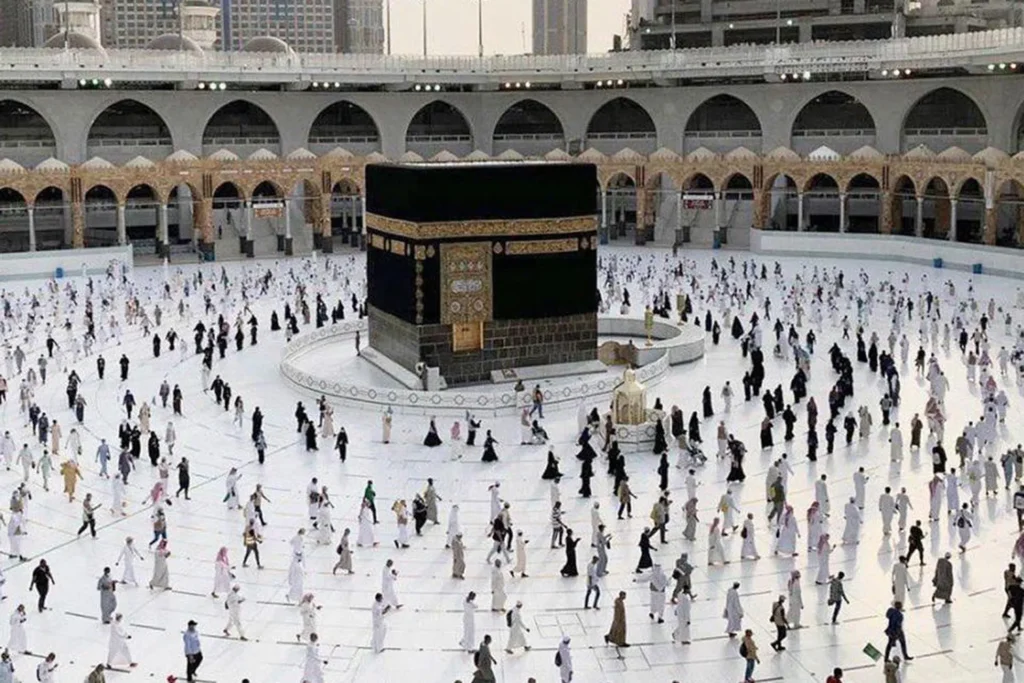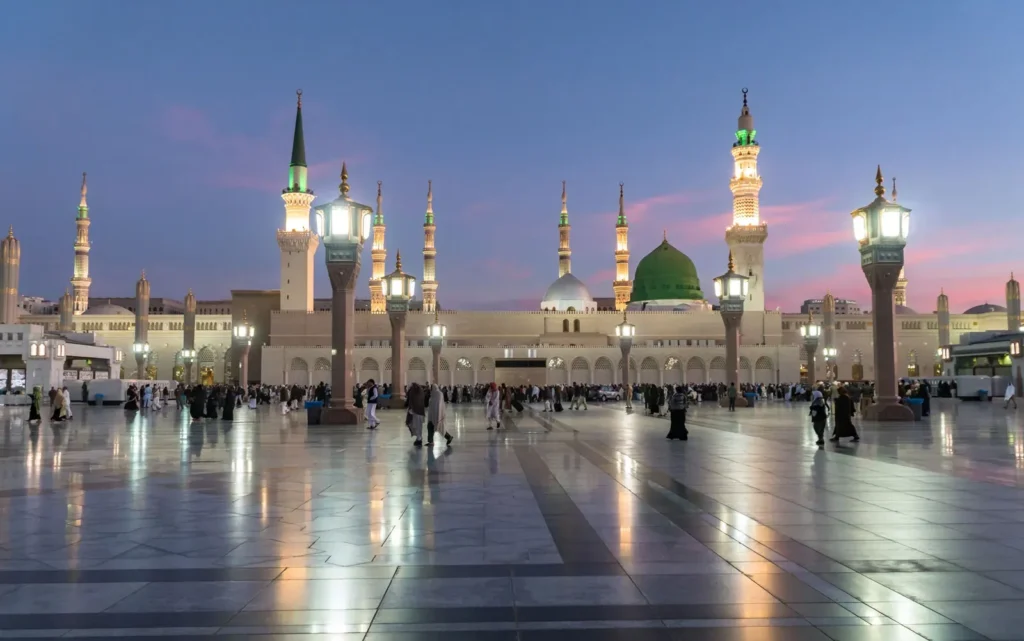The Prophet Muhammad (PBUH) and the Origins of Islam
Prophet Muhammad(PBUH), also known as Muhammad ibn Abdullah, was the founder of Islam and the last Prophet in a series of prophets sent by Allah to guide humanity. Born in 570 CE in Mecca, Arabia, he spent most of his life spreading the message of Islam and establishing the foundations of a new religion. Today, he is considered one of the most influential figures in history and is revered by Muslims worldwide. In this article, we will learn more about the life and legacy of Prophet Muhammad (PBUH).
He is the perfect Man in the whole world. He achieved this perfection in his 63 years and changed the world’s life. We can get guidance in every aspect of life from his teaching, whether related to science, society, economics, morals, or politics.
Early Life of Prophet Muhammad(PBUH)
Prophet Muhammad (PBUH) was born into the Quraysh tribe in Mecca, Arabia. His father, Abdullah, died before he was born, and his mother, Aminah, passed away when he was six. He was raised by his grandfather and later by his uncle, Abu Talib. As a young man, Muhammad (PBUH) worked as a shepherd and a merchant. People know him for his honesty and integrity, which earned him the nickname “al-Amin,” which means “the trustworthy.”
Prophet Muhammad’s First Revelation
At 40, Prophet Muhammad (PBUH) received his first revelation from Allah while meditating in a cave on Mount Hira. The angel Gabriel came to him and commanded him to recite the words of Allah. This event is the first revelation and marks the beginning of Prophet Muhammad’s prophethood. He was initially frightened by the experience but later realized that Allah had chosen him to spread his message.
Prophet Muhammad’s Message
Prophet Muhammad’s (PBUH) message centered on believing in one God and rejecting idol worship. He preached that all humans are equal and that their level of piety is the only distinction between them. Prophet Muhammad also taught that the purpose of life is to worship Allah and that all human actions should be directed toward that goal. He also emphasized the importance of good deeds, charity, and kindness toward others.
Prophet Muhammad’s Struggle in Mecca
Prophet Muhammad’s (PBUH )message was not well-received in Mecca, a center of idol worship. He faced persecution and ridicule from the Meccans, who saw his teachings threatening their way of life. Despite this, he continued to preach and convert people to Islam. His followers, known as Muslims, faced persecution, and many were forced to flee Mecca and seek refuge elsewhere.

Prophet Muhammad’s Migration to Medina
In 622 CE, Prophet Muhammad(PBUH) and his followers migrated to Medina, then known as Yathrib. This event is known as the Hijra and marks the beginning of the Islamic calendar. In Medina, the people welcomed Prophet Muhammad(PBUH), and he established the first Islamic state. He also negotiated treaties with the neighboring tribes and established a system of justice and governance based on Islamic principles.

Prophet Muhammad’s Return to Mecca
In 630 CE, Prophet Muhammad (PBUH) returned to Mecca with an army of Muslims and conquered the city without bloodshed. He entered the city as a humble leader and forgave those who had persecuted him and his followers. He then destroyed the idols in the Kaaba, a symbol of idol worship, and established Islam as the dominant religion in the region.
Death of Prophet Muhammad (PBUH)
Prophet Muhammad (PBUH) fell ill in 632 CE and was bedridden for several days. Despite his illness, he continued to lead prayers and meet with his followers. On the 12th of Rabi’ al-Awwal, the third month of the Islamic calendar, Prophet Muhammad passed away at 63. His death was a profound loss for the Muslim community and a time of great sadness and mourning.
After his death, there was some confusion about who would succeed him as the Muslim community leader. This led to a period of uncertainty and unrest, which was eventually resolved with the election of Hazrat Abu Bakr Siddique as the first caliph of Islam.
His Morals and Character
Among the many teachings of the Prophet (PBUH), his moral character is one of the most significant. The moral character of the Prophet is based on the principles of love, compassion, and justice. These morals were demonstrated in his everyday life and interactions with people of different backgrounds. The Prophet was known for his honesty, kindness, and patience. He never lied, cheated, or harmed anyone, even those who opposed him.
One of the most important morals of the Prophet (PBUH) was his emphasis on the importance of forgiveness. He forgave those who hurt him and encouraged his followers to do the same. He said, “Whoever pardons and makes reconciliation, his reward is with Allah.” This emphasis on forgiveness has been a guiding principle for Muslims throughout history.
The Prophet (PBUH) also taught the importance of humility. He never considered himself above others and always treated everyone with respect and dignity. He said, “The most beloved of people to Allah are the most humble.” This moral has been a source of inspiration for Muslims and non-Muslims alike.
The Prophet’s moral character also included his commitment to social justice. He fought against the oppression of the weak and marginalized and emphasized the importance of treating everyone fairly. He said, “Help your brother, whether he is an oppressor or he is oppressed.” This teaching has been an inspiration for many social justice movements around the world.
In addition to these morals, the Prophet taught the importance of honesty, trustworthiness, and generosity. He encouraged his followers to speak the truth, fulfill their promises, and give to those in need. He said, “The best of people are the most beneficial to others.” These teachings have profoundly impacted the moral values of Muslims and non-Muslims alike.
Legacy of Prophet Muhammad(PBUH)
Prophet Muhammad’s (PBUH)legacy is profound and far-reaching. Millions of people have inspired his teachings. His key teachings include the importance of mo, nontheism, kindness, and compassion, and the necessity of good deeds.
Quotes of Muhammad (PBUH)
Conclusion
In conclusion, the life of Prophet Muhammad (PBUH), peace be upon him, was a profound and transformative experience for himself and his followers. His legacy has had a lasting impact on the world, and his teachings continue to inspire and guide people today. By following his example, we can strive to live a life of compassion, kindness, and devotion to Allah.
Visit to learn more informative articles on beingassistant.com.
